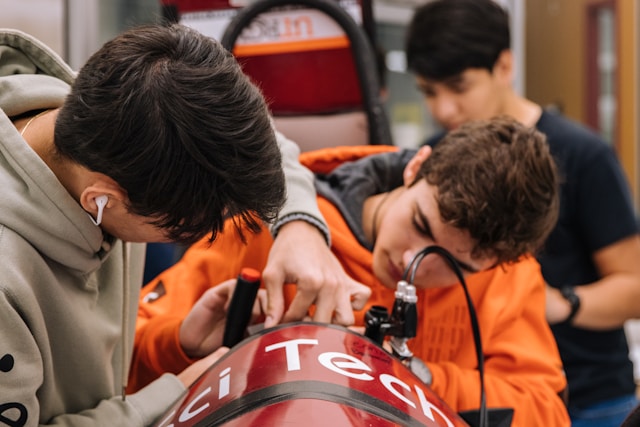Personality is a complex and multi-faceted construct that encompasses a wide range of traits, behaviors, and attitudes that define who we are as individuals. While some aspects of our personality are genetically determined, there is ample evidence to suggest that we can develop and improve our personality through intentional effort and practice. In this article, we will explore some practical steps you can take to develop your personality and become a better version of yourself.
- Develop self-awareness
Self-awareness is the foundation of personal growth and development. It involves a deep understanding of your emotions, thoughts, and behaviors, as well as your strengths and weaknesses. To develop self-awareness, you can try journaling, meditation, or taking personality assessments. By understanding yourself better, you can identify areas that need improvement and develop a plan to address them.
- Build emotional intelligence
Emotional intelligence (EI) is the ability to recognize, understand, and manage your own emotions, as well as the emotions of others. Developing EI can improve your relationships, communication skills, and overall well-being. To build your emotional intelligence, you can practice active listening, empathy, and mindfulness. You can also seek feedback from others to gain a better understanding of how your emotions and behaviors affect them.
- Cultivate positive thinking
Positive thinking is the practice of focusing on the positive aspects of your life and the world around you. It can improve your mood, reduce stress, and increase your resilience in the face of challenges. To cultivate positive thinking, you can practice gratitude, visualization, and affirmations. You can also surround yourself with positive people and media to reinforce a positive mindset.
- Develop resilience
Resilience is the ability to bounce back from setbacks, failures, and adversity. It is a critical trait for personal and professional success. To develop resilience, you can practice self-care, build a support network, and reframe negative experiences as learning opportunities. You can also develop a growth mindset, which involves embracing challenges as opportunities for growth and improvement.
- Practice assertiveness
Assertiveness is the ability to express your needs, wants, and opinions in a clear and confident manner, without infringing on the rights of others. It can improve your communication skills, self-esteem, and relationships. To practice assertiveness, you can use “I” statements, set boundaries, and negotiate for what you want. You can also practice active listening and empathy to better understand the needs and perspectives of others.
- Develop social skills
Social skills are the behaviors and attitudes that allow you to interact effectively with others. They are critical for building and maintaining relationships, as well as for success in the workplace. To develop social skills, you can practice active listening, assertiveness, and empathy. You can also practice nonverbal communication, such as maintaining eye contact and using appropriate body language.
- Pursue personal interests
Pursuing personal interests can improve your self-esteem, satisfaction, and overall well-being. It can also provide opportunities for personal growth and development. To pursue personal interests, you can try new hobbies, take classes or workshops, or volunteer for a cause you care about. You can also set goals for yourself and track your progress over time.
- Practice self-care
Self-care is the practice of taking care of your physical, emotional, and mental health. It is critical for maintaining your overall well-being and resilience. To practice self-care, you can prioritize sleep, exercise, and nutrition. You can also engage in activities that bring you joy, such as reading, spending time with loved ones, or practicing a creative hobby.
- Seek feedback
Seeking feedback from others can provide valuable insights into how others perceive you and your behaviors. It can also help you identify blind spots and areas for improvement.
In conclusion, developing your personality is a lifelong process that requires intentional effort and practice. By cultivating self-awareness, emotional intelligence, positive thinking, resilience, assertiveness, social skills, pursuing personal interests, practicing self-care, and seeking feedback, you can improve your personal and professional relationships, enhance your overall well-being, and become a better version of yourself. Remember that personal growth is a journey, not a destination, so be patient, kind to yourself, and keep striving for progress, not perfection.











